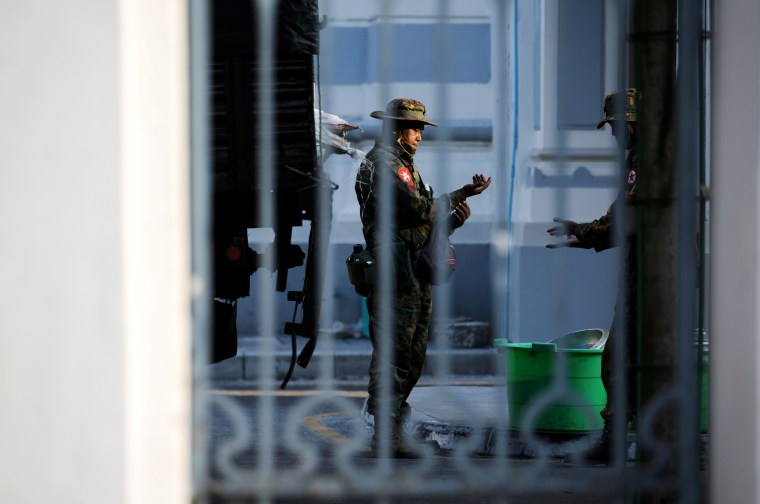Bangkok, February 1, 2021 – Myanmar’s military must fully restore all blocked TV stations, phone lines, and internet services and refrain from imposing any orders that restrict the media’s ability to freely report the news amid emergency rule, the Committee to Protect Journalists said today.
The military seized power from Myanmar’s elected government today, detaining top civilian leaders–including State Counselor Aung San Suu Kyi–and activists, and imposing emergency rule for up to one year until new elections are held, according to multiple news reports.
Those reports said local and international broadcasters, including the BBC, were off the air, and internet connections and phone services were down or intermittently disrupted in major cities. The New York Times reported that some local journalists had gone into hiding over fears of possible reprisals for their previous reporting.
“CPJ is alarmed by today’s imposition of emergency rule and the detention of democratically elected leaders by Myanmar’s military. The military must allow journalists to continue to do their jobs without fear of reprisal, and fully restore internet and communications services throughout the country at this crucial time,” said Shawn Crispin, CPJ’s senior Southeast Asia representative. “Under no circumstances should the military revert to the crude and harsh censorship policies of its previous junta regimes.”
Myanmar’s military, which controlled the home, defense, and border affairs ministries before today’s coup, has filed various criminal complaints against journalists over their critical reporting in recent years, CPJ has documented. It was not immediately clear if any journalists were among those detained today.
Chapter 11 of Myanmar’s 2008 constitution, which defines provisions for a state of emergency, does not explicitly allow for media censorship, according to CPJ’s review of the document.
Myanmar’s previous military rulers imposed strict pre-publication censorship and habitually jailed journalists during decades of iron-fisted authoritarian rule that drove many local journalists into exile in neighboring countries, CPJ has reported. Local and exile-run media were gradually allowed to report more freely during a transition to democracy that started in 2011, but journalists still faced regular harassment and persecution under Suu Kyi’s elected government, CPJ found.
